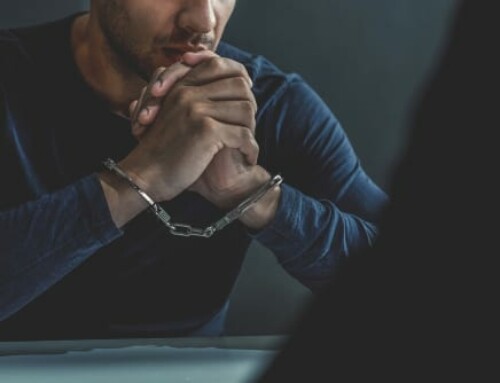As a criminal defense attorney in Charleston, SC, I know that cyberbullying has become a nationwide epidemic. Bullying is no longer confined to picking on peers and passing salacious notes in class; bully has now taken on a digital form that can potentially become life-threatening to the victim. Bullies have been around forever, but the internet has given them a new platform for their harassment. In a recent survey, bullies sited the following reasons for their actions:
- it makes them feel stronger, smarter, or better than the person bullied
- they are bullied at home
- it is what you do if you want to hang out with the right crowd
- because others are doing it
- jealous of the victim
- it keeps others from bullying them
Regardless of the reason, bullying is wrong and there are consequences for these actions. In this article, I will define cyberbullying, explain the criminal charges associated with cyberbullying, how schools are helping to curb the epidemic, and the dangers associated with cyberbullying in South Carolina.
What is Cyberbullying in South Carolina?
Cyberbullying can occur through text, social media and other forums where people can view, participate in, or share content. Cyberbullying includes sending, posting, or sharing negative, harmful, false content about someone else to cause embarrassment or humiliation. Most victims of cyberbullying are school-aged children and the State of South Carolina passed laws intended to curb this potentially dangerous activity.
South Carolina law (§ 59-63-120) defines bullying as any gesture, act, or electronic communication that can reasonably be perceived as:
- causing physical or emotional harm to a student, damaging a student’s property, or placing a student in reasonable fear of personal harm or harm to property, or
- insulting or demeaning a student or a group of students, and causing substantial interference with, or disruption of, orderly school operations.
Can Cyberbullies Face Criminal Charges in South Carolina?
In some situations, those who engage in cyberbullying in South Carolina can face criminal charges:
(A) “Harassment in the first degree” means a pattern of intentional, substantial, and unreasonable intrusion into the private life of a targeted person that serves no legitimate purpose and causes the person and would cause a reasonable person in his position to suffer mental or emotional distress. Harassment in the first degree may include, but is not limited to:
(1) following the targeted person as he moves from location to location;(2) visual or physical contact that is initiated, maintained, or repeated after a person has been provided oral or written notice that the contact is unwanted or after the victim has filed an incident report with a law enforcement agency;
(3) surveillance of or the maintenance of a presence near the targeted person’s:
(a) residence;(b) place of work;
(c) school; or
(d) another place regularly occupied or visited by the targeted person; and
(4) vandalism and property damage.
(B) “Harassment in the second degree” means a pattern of intentional, substantial, and unreasonable intrusion into the private life of a targeted person that serves no legitimate purpose and causes the person and would cause a reasonable person in his position to suffer mental or emotional distress. Harassment in the second degree may include, but is not limited to, verbal, written, or electronic contact that is initiated, maintained, or repeated.
(C) “Stalking” means a pattern of words, whether verbal, written, or electronic, or a pattern of conduct that serves no legitimate purpose and is intended to cause and does cause a targeted person and would cause a reasonable person in the targeted person’s position to fear:
(1) death of the person or a member of his family;
(2) assault upon the person or a member of his family;
(3) bodily injury to the person or a member of his family;
(4) criminal sexual contact on the person or a member of his family;
(5) kidnapping of the person or a member of his family; or
(6) damage to the property of the person or a member of his family.
(D) “Pattern” means two or more acts occurring over a period of time, however short, evidencing a continuity of purpose.
(E) “Family” means a spouse, child, parent, sibling, or a person who regularly resides in the same household as the targeted person.
(F) “Electronic contact” means any transfer of signs, signals, writings, images, sounds, data, intelligence, or information of any nature transmitted in whole or in part by any device, system, or mechanism including, but not limited to, a wire, radio, computer, electromagnetic, photoelectric, or photo-optical system.
How Can South Carolina Schools Help Prevent Cyberbullying?
Many South Carolina Schools have begun training school staff and students to address and help prevent cyberbullying.
Teach Students About Cyberbullying
Schools can incorporate cyberbullying prevention in lessons and activities. Examples of activities to teach about bullying include:
- internet or library research, such as looking up types of cyberbullying, how to prevent it, and how students should respond
- presentations, such as a speech, poem role-play or skits on stopping cyberbullying
- how to report cyberbullying
- artistic works, such as a collage about the effects of cyberbullying
Train School Faculty and Staff on Cyberbullying
To help cyberbullying prevention efforts, school faculty and staff should be trained to notice cyberbullying, the school’s policies and how to enforce those policies. Training may take many forms such as staff meetings, one-day training sessions, and teaching through modeling preferred behavior.
Schools should also establish clear procedures for reporting cyberbullying. The procedures should be made easy; students are more likely to report incidents when it is easy to do. Reporting systems help track individual incidents and responses as well as trends over time. It is also important to keep reports confidential and private; students should be encouraged to report cyberbullying without fear of retaliation. Many students feel that reporting the incident will only increase its frequency and intensity.
What Can South Carolina Students Do To Help Prevent Cyberbullying?
According to StopBullying.Gov, there are things students can do to protect themselves from cyberbullies.
- Always think about what you post. You never know what someone will forward. Being kind to others online will help to keep you safe. Do not share anything that could hurt or embarrass anyone.
- Keep your password a secret from other kids. Even kids that seem like friends could give your password away or use it in ways you don’t want. Let your parents have your passwords.
- Think about who sees what you post online. Complete strangers? Friends? Friends of friends? Privacy settings let you control who sees what.
- Keep your parents in the loop. Tell them what you’re doing online and who you’re doing it with. Let them friend or follow you. Listen to what they have to say about what is and isn’t okay to do. They care about you and want you to be safe.
- Talk to an adult you trust about any messages you get or things you see online that make you sad or scared. If it is cyberbullying, report it.
What are the Dangers of Cyberbullying in South Carolina?
Aside from low self-esteem and humiliation, those under the age of 25 who are victims of cyberbullying are more than twice as likely to self-harm and enact suicidal behavior, according to a new study. The research also suggests that it is not just the victims of cyberbullying that are more vulnerable to suicidal behaviors, but the perpetrators themselves are at higher risk of experiencing suicidal thoughts and behaviors as well. Communities are actively trying to get out in front of this public health concern through education and intervention.
Bullying has been around since the time of Cain and Abel, however, cyberbullying has taken this crime to new levels. You do not have to tolerate bullying in any form. If you see something, say something. If you have been the victim of cyberbullying or would like to know more about this crime, please contact our criminal lawyer at the Deaton Law Firm. There is no need to suffer in silence.






